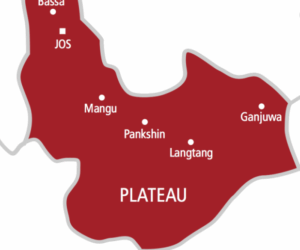The Kano State Government has officially deployed the first batch of 380 marshals to curb the rising cases of phone snatching and petty crimes across the state.
The initiative, launched over the weekend, is part of Governor Abba Kabir Yusuf’s broader strategy to strengthen public safety and restore order in Kano’s urban areas.

According to government officials, the newly trained marshals were selected based on strict criteria and equipped with essential tools to respond swiftly to street-level crimes.
Their primary mission is to address phone snatching, pickpocketing, and other minor offenses that have become rampant in busy public areas.
Governor Yusuf described the deployment as a “people-focused security measure,” noting that it demonstrates his administration’s commitment to community protection.
He added that every citizen deserves to move freely without fear of harassment or theft, and the government will continue investing in local security infrastructure.
Hotspot areas targeted across Kano
The government confirmed that the first phase of deployment focuses on high-risk areas known for frequent cases of phone theft.
These include Sabon Gari and Kwari Markets, where large trading activities and crowds make people vulnerable to pickpockets. Other target zones are Kofar Nassarawa, Farm Centre Junction, Yankaba, Hotoro, and Zoo Road.
Marshals will also patrol University Road and the Bayero University campus environment, areas that have been frequent targets for phone snatchers operating on motorcycles.
Authorities say the team will be visible in markets, bus stops, and junctions, key locations where most incidents occur.
Officials further disclosed that subsequent batches of marshals will be deployed to all 44 local government areas in Kano State.
The aim is to ensure every community benefits from the new security initiative, thereby reducing urban and rural crime rates simultaneously.
Collaborative and community policing approach
The marshals are expected to work closely with existing security structures, including the Nigeria Police Force, Kano Hisbah Corps, and local vigilante networks.
This collaboration will allow for better coordination and faster responses to distress calls from residents.
While the marshals will not be armed, they have been provided with motorcycles, radios, uniforms, and other communication equipment to ensure mobility and efficiency.
The use of technology and quick reporting channels will also help authorities monitor their performance in real time.
Kano State officials emphasized that the project represents a shift toward community-driven policing, encouraging residents to share information and assist in surveillance efforts.
The government also hinted at plans to train more marshals and integrate digital systems for tracking stolen phones, ensuring lasting impact in the fight against urban crime.








